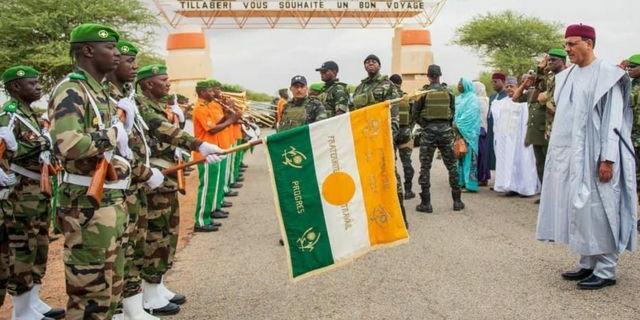The military takes responsibility for a coup in Niger, President was still detained. The West African country of Niger has been thrown into turmoil as soldiers declared a coup on national TV. The military has taken control of the nation, dissolving the constitution, suspending all institutions, and closing the borders, leaving the fate of Niger in uncertainty.
President Mohamed Bazoum, who was democratically elected in 2021, has been detained by troops from the presidential guard since early Wednesday morning. However, the current whereabouts of the President remain unknown.
The international community has expressed concern over the situation, with US Secretary of State Antony Blinken assuring President Bazoum of “unwavering support” in a phone call, while UN Secretary-General Antonio Guterres offered the UN’s full backing.
President Bazoum is a key ally in the fight against Islamist militancy in West Africa, making the coup particularly worrisome for neighboring countries and Western nations. Mali and Burkina Faso have experienced coups in recent years triggered by jihadist uprisings, causing regional instability.
During a televised address, Col Maj Amadou Abdramane, accompanied by nine other uniformed soldiers, declared the establishment of the National Council for the Safeguard of the Homeland (CNSP), assuming control of the nation’s governance. The military cited the deteriorating security situation and poor economic and social governance as the reasons for their intervention.
Col Maj Abdramane asserted, “All external partners are asked not to interfere,” signaling the military’s intention to manage the situation internally. The announcement also included the imposition of a night curfew from 22:00 to 05:00 local time until further notice.
Supporters of President Bazoum took to the streets in the capital city of Niamey earlier on Wednesday, July 26, 2023. The city remained relatively calm, but the soldiers involved in the coup fired shots to disperse the demonstrations.
Niger has a history of political instability, having experienced four coups since gaining independence from France in 1960, with numerous attempted coups further adding to the country’s challenges. The presence of Islamist insurgencies in the southwest and southeast regions has exacerbated Niger’s security issues.
In response to the coup, the Economic Community of West African States (ECOWAS) condemned the military’s attempt to seize power through force and sent Benin’s President Patrice Talon to mediate and restore constitutional order in Niger.













